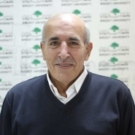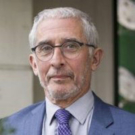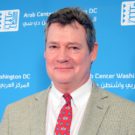Speakers

Michele Dunne
Executive Director
Franciscan Action Network

Nazmi Al Jubeh
Associate Professor of History and Archaeology
Birzeit University

Daniel Seidemann
Israeli Attorney Specializing in Israeli-Palestinian Relations in Jerusalem
Moderator
About the Webinar
On September 20, Arab Center Washington DC (ACW) hosted a webinar titled “Jerusalem’s Religious Status Quo: Erosion and Future Implications.” Panelists were Michele Dunne, Executive Director at the Franciscan Action Network; Nazmi Al Jubeh, Associate Professor of History and Archaeology at Birzeit University; and Daniel Seidemann, Israeli Attorney Specializing in Israeli-Palestinian Relations in Jerusalem. Charles W. Dunne, Nonresident Fellow at Arab Center Washington DC, moderated the event.
Nazmi Al Jubeh discussed the fact that there are essentially two different Status Quos, one established during the Ottoman era and then perpetuated under the British Mandate for Palestine, and a de facto Status Quo that is “a form of expansion of regulations on holy sites.” He also spoke about ongoing Israeli government interference, and about the deterioration of the Status Quo following the 1967 Israeli occupation of East Jerusalem due to several Israeli activities and initiatives.
- On the Status Quo after the 1967 Israeli occupation of East Jerusalem, Al Jubeh said, “We are living a continuous deterioration of the Status Quo, both de facto and de jure.”
- On the fact of increased religious conflict over the site of the Al-Aqsa Mosque compound, Al Jubeh stated, “This is the place where we are going to have peace or bloody religious conflict in the future…. It is in the hands of the Israelis to decrease or increase this conflict over the site.”
Daniel Seidemann spoke about the Status Quo governing the Al-Aqsa Mosque compound and how the notion of religious equilibrium is increasingly being violated by the Temple Mount movement, by American policy under former President Trump, by biblically-minded settlers in East Jerusalem, and by what Seidemann called “Israeli nationalistic triumphalism.”
- On the increase in violations of the Status Quo, especially since 2017, Seidemann said that it represents “the Trump plan writ large: the fragmentation of Palestinian East Jerusalem, the denationalization of the Palestinians, and the marginalization of Christian and Muslim equities.”
- On recent developments affecting the future of the Status Quo, Seidemann argued that, “What we are witnessing is a grave threat to the very character of Jerusalem. It is a grave threat to the nature of the conflict. It is a grave threat to local, regional, and global stability, and will certainly make the already challenging prospect of a political agreement less and less achievable.”
Michele Dunne focused her comments on Jerusalem’s diverse Christian communities, on rising instances of disputes between Christian leaders and the Israeli government, and on Israeli settler organizations’ purposeful targeting of Christian populations and holy sites, especially in East Jerusalem and on the Mount of Olives.
- On the relationship between Christian leaders and Israel, Dunne stated that there has recently been “a pattern of noticeable deterioration in relations between Christian Church leaders…and the Israeli government.
- On the Israeli government’s concern with other stakeholders in Jerusalem, Dunne said, “There’s this sense that the Israeli government is much less concerned than it was at an earlier time, much less concerned about being deferential to Christian as well as Muslim authorities, much less concerned about creating the impression that the Israeli government is a responsible custodian of holy places and that it will respect the religious plurality of Jerusalem.”

